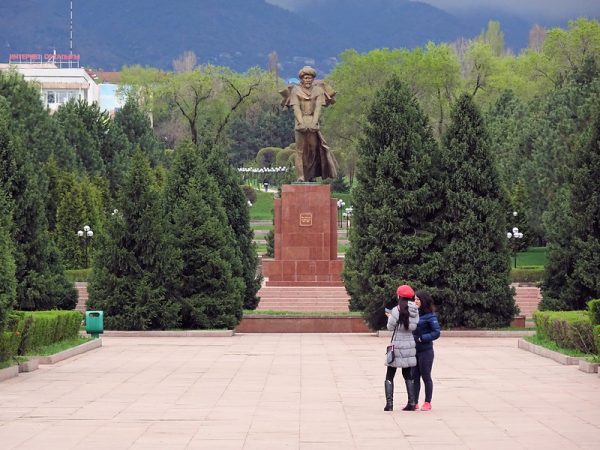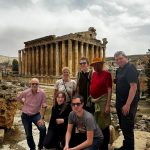
During the Soviet Union, people worshipped Lenin, Marx, Stalin and even their local communist leaders such as Frunze. When the Soviet Union collapsed each country needed to find new national heroes. The rest of the world does it, the Scandinavians have their Nordic Gods, Ireland has St Patrick and England has St George. In this blog we’ll look at Al-Farabi. Kazakhstan was the toughest for me to do, and I left it until last as I really couldn’t decide who they revere the most.
Lots of names came to mind – Zhambyl, Abilai Khan, Abay but in the end it had to be Al-Farabi. There is probably more people named after him than anyone else, but only just. Of course, there is just as much named after the former President and still Father of the Nation Nursultan Nazerbayev (who even has a city to his name now), but I’m going with historical figures and not modern day strongmen.
Al-Farabi is one of the more controversial ones because it’s unlikely that he was actually Kazakh. He definitely existed around the 10th century AD, but first and foremost he was a Persian speaker and is considered one of the great Persian poets. It’s also not quite clear where he was born, only that it was in a city called Farab. Many Kazakhs insist that he was born in Kazakhstan and there is a Farab, near Otrar, in modern day southern Kazakhstan, but there were many places by this name all over Central Asia. The other leading contender is that he was born in modern day Afghanistan in another Farab, this time near the Turkmenistan border.
Arab historians of the 13th and 14th centuries claim that Al-Farabi came from a noble Persian family. His writings were predominately in Persian, but also some were in other languages including Greek, but certainly no Turkic languages and definitely not in Kazakh.
In his early years, he suddenly pops up in Baghdad and spends most of his life there studying and writing. Al-Farabi also travelled a lot, making journeys to Morocco and Egypt, and even living in Aleppo for a period of time before finally settling in Damascus, Syria. Al-Farabi was also a Shia muslim as opposed to Kazakhs who are Sunni (have a look here if you’re confused by the distinction).
Al-Farabi really had his finger in every pie. He became one of the leading philosophers, psychologists, physicists, mathematicians, alchemists, astronomers and even wrote music!
We’re not quite sure how Kazakhstan claim Al-Farabi as their own as there is a big chance he never even set foot in modern day Kazakhstan. However it’s no bad thing that his writings are studied extensively in Kazakh schools today and Kazakhs will take any excuse to read some of his poetry which is all rather civilised when you think about it.





